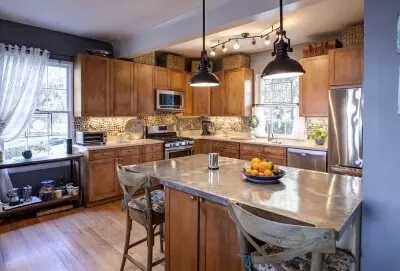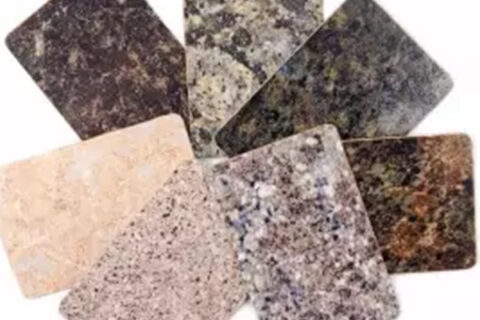What Are the Differences Between Granite and Quartz?
Granite and quartz are both great choices for countertops and come in many different patterns and dazzling colors. If you’re about to embark on a bathroom or kitchen remodel, hire an experienced countertop professional who offers granite and quartz installation services, as well as bathroom and kitchen design.

Granite Countertops
Granite is a natural product, mined in large slabs from quarries and shipped all over the world. It’s highly regarded by homeowners and interior designers, and known for embodying elegance and natural beauty. Since granite is porous, it needs to be sealed—and resealed every year—to protect it from water intrusion and damage. These countertops are extremely durable, but like all natural stones, granite is susceptible to staining, chipping, and scratching. With proper care, granite countertops can last a lifetime.
Quartz Countertops
Quartz countertops are engineered products that are made with crushed quartz and resin—the ratio of quartz to resin varies among manufacturers, but is on average about 95% quartz to 5% resin. Unlike granite and natural stone, quartz countertops are not porous, do not need to be sealed, and are stain and scratch resistant. These characteristics make quartz countertops easy to clean and maintain, and an unfavorable place for harmful food-related bacteria to colonize. Though quartz countertops are highly durable, they are not immune to damage. For example, repeated exposure to direct sunlight can cause quartz countertops to fade over time, and wine spills that are allowed to sit on quartz countertops can cause minor staining.
Cost of Granite and Quartz
High-quality granite and quartz is going to eat up a good chunk of your budget, so plan according. When it comes down to it, granite countertops are going to set you back a bit more than quartz. Regardless of which one you choose, granite and quartz countertops are well worth the money you invest in either of them. Ultimately, both materials are excellent choices for your home, which means that your decision should be based strictly on your individual preferences and needs.


